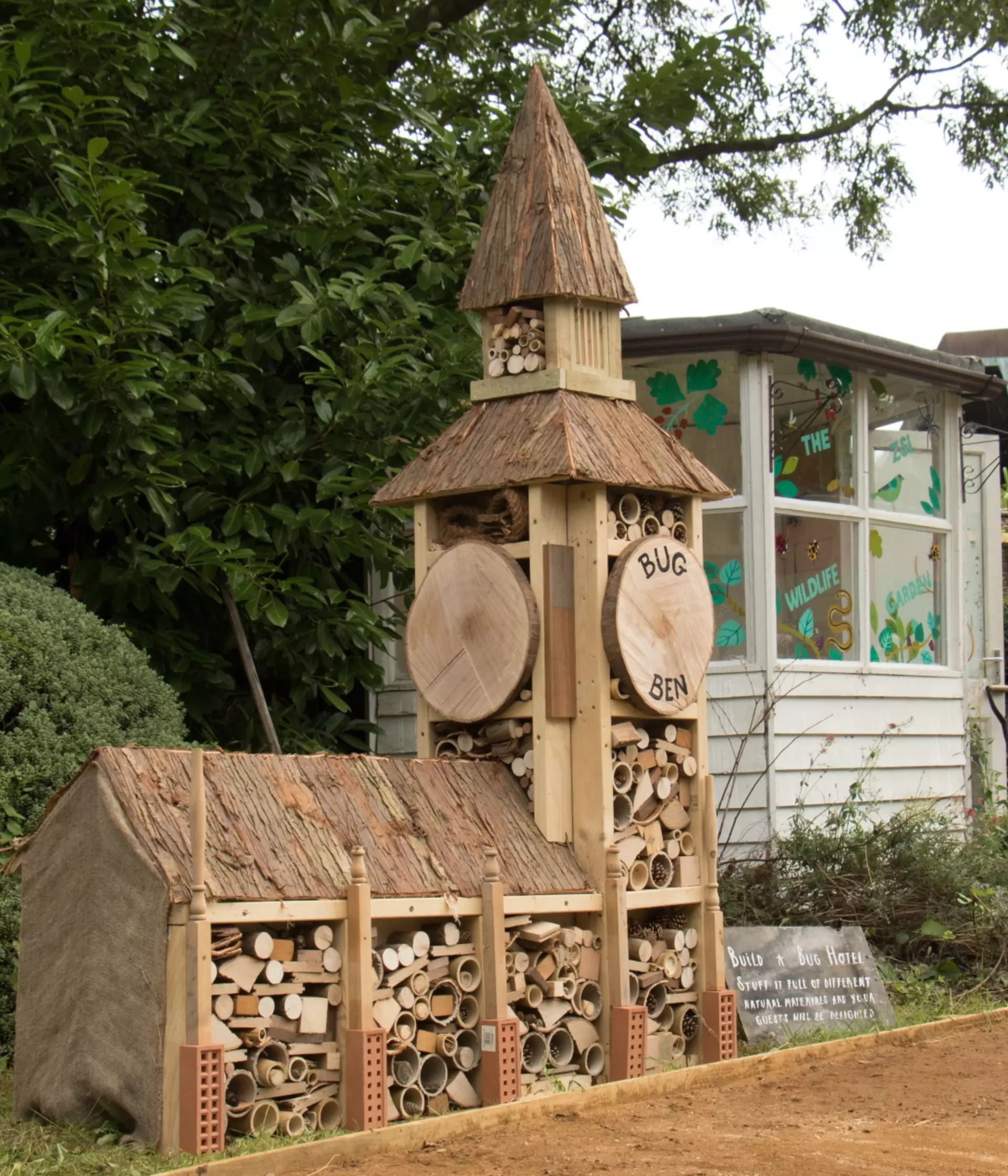Attracting wildlife to your garden
As other natural habitats shrink, our gardens are becoming more and more important for British wildlife.
No matter how large or small your outdoor space is, there are so many ways you can make it a welcoming home for wildlife – from amazing insects like stag beetles and peacock butterflies, to hedgehogs and blue tits. Try our simple tips to welcome wildlife into your garden.
Building a bug hotel
You can provide a home for insects by building an insect hotel. It doesn’t have to be elaborate – it could be as simple as a bundle of hollow wooden canes, or cardboard tubes, tied together with twine. Hang it in a secure place (against a wall or a tree trunk) or tuck it in a quiet corner of the garden. Even a pile of dead wood is a palace for all kinds of animals!
Hedgehog friendly gardening
Help a hedgehog by making sure there is a small hole (at least 13cm x 13cm) in your fence for them to pass through between gardens. With hedgehog numbers declining drastically in Britain, giving them the opportunity to forage freely and find a mate is vital.
When using equipment such as strimmers and lawnmowers, look out for small creatures so that they have a chance to move. Also, take care when using garden netting, as animals can become entangled in it.
Feed and water the birds
In addition to fruit and seed heads from plants in your garden, supplementary food can be a lifeline for birds, especially in the winter months. It’s important to purchase foods from reputable manufacturers with quality control procedures, and to ensure that foods are stored properly in a clean, dry environment inaccessible to pests.
Make sure you clean the feeders regularly with hot water and mild disinfectant to help stop the spread of infections. The positioning of bird feeders is also really important. Place feeders in locations where they are unlikely to become contaminated with droppings (e.g. not under branches or wires where birds frequently perch), and try moving them around the garden to help avoid build-up of food waste or bird droppings in one area – but remember to choose locations that are inaccessible to cats!
If you happen to see any signs of ill health in the birds visiting your feeders, don’t forget to report your observations to Garden Wildlife Health to help us learn more about the conditions affecting our wildlife species. A birdbath with shallow, sloping sides will attract many species. Replenish with fresh water on a daily basis and keep bird baths clean as stagnant, dirty water may help to spread disease.
Create a pond for native wildlife
The nation’s gardeners have created an additional 2-3 million ponds! Garden ponds are a haven for all kinds of wildlife, including frogs, newts, pond skaters, water beetles, dragonflies and damselflies. They’re also an important source of drinking water for mammals and birds. It’s important to make sure your pond has a ramp or a shallow end, so that if a hedgehog or another animal falls in, it can get out again. If you spot frogspawn, don’t move it to another pond as this may inadvertently lead to the spread of amphibian diseases.
Wild gardening
Finally, relax and do nothing. Set aside an area and allow grasses, wildflowers and nettles to grow, providing shelter and food for mammals and insects, which in turn provide food for birds. So love your weeds!
Garden Wildlife Health
You can also help by letting us know about any sick or dead animals you find. Together with partners, we run the Garden Wildlife Health project, which monitors the health of British wildlife, and we rely on the public to submit reports of sick or dead garden wildlife and samples for analysis.
To report death or illness in garden birds, amphibians, reptiles and hedgehogs visit Garden Wildlife Health. You can also contact the GWH vets to report sightings of sick or dead garden birds, amphibians, reptiles and hedgehogs on Tel: 0207 449 6685 (phones open during office hours, Monday-Friday only).
Please do not submit carcasses for examination without prior arrangement and consent from one of the GWH veterinary surgeons.
Members of the public who are concerned about a sick or injured wild animal in their garden should contact their local veterinary surgeon, the RSPCA (24-hour tel. line: 0300 1234 999) or Scottish SPCA (24-hour Tel: 03000 999 999) for advice.
